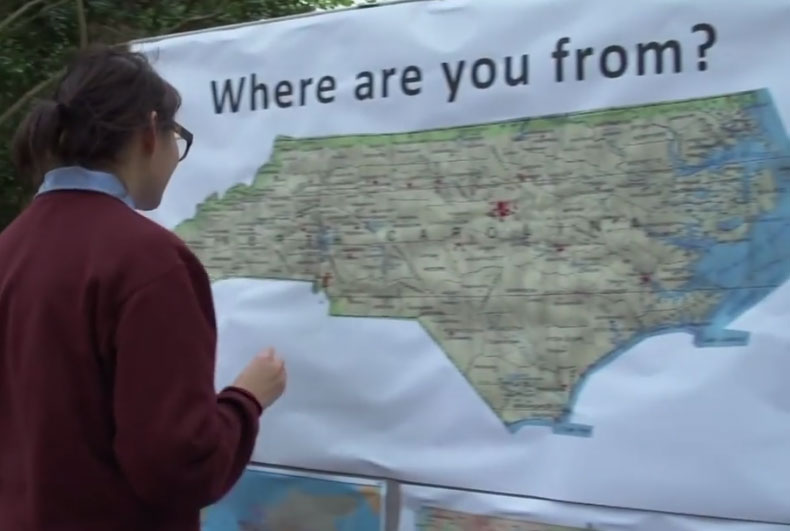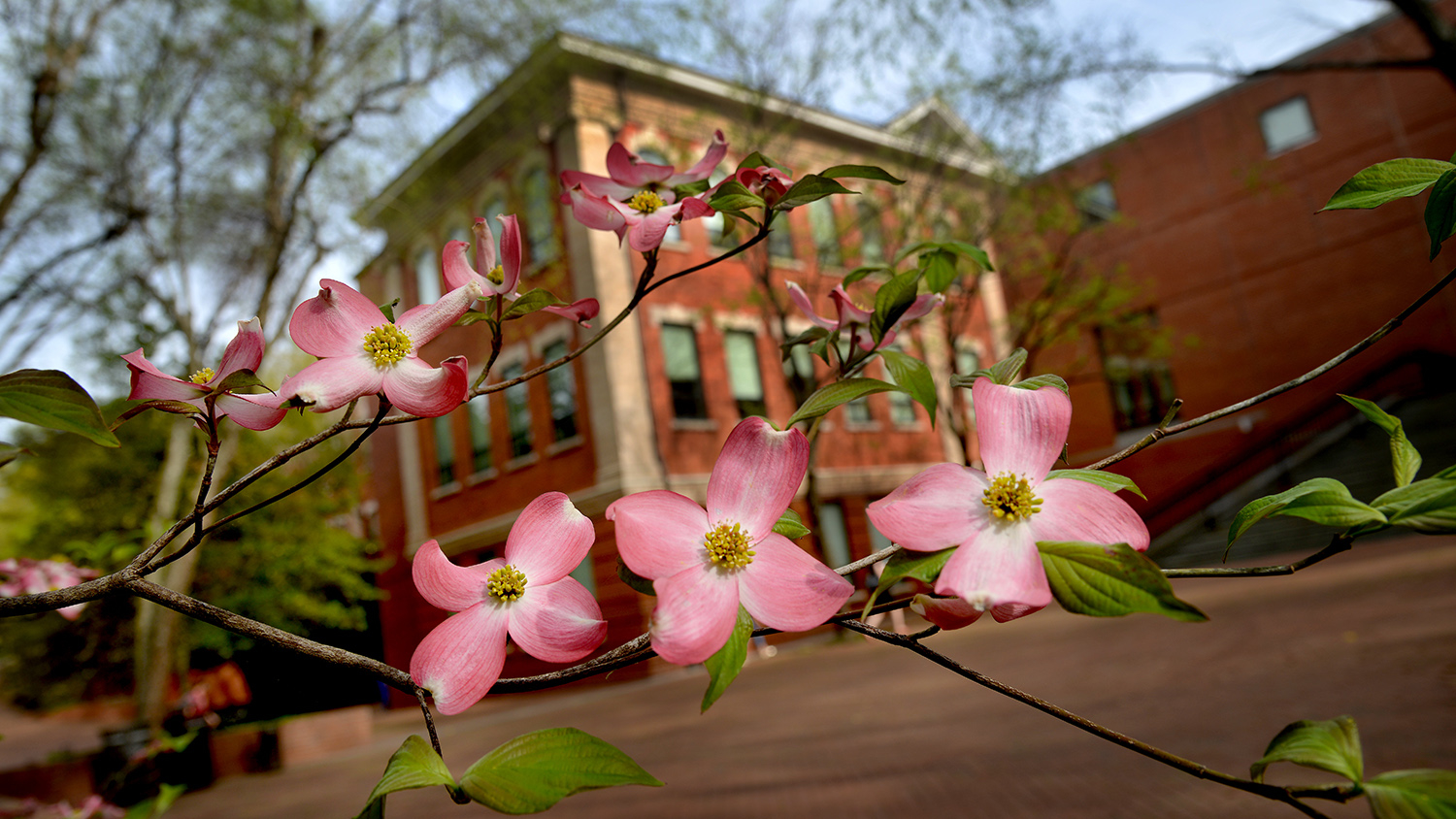The Linguists Are Coming! The Linguists Are Coming!


Watch your language later this week. Linguists from around the country are converging in Raleigh as NC State hosts a joint national conference combining Language Variation in the South (LAVIS), which only occurs once a decade, and the 82nd meeting of the Southeastern Conference on Linguistics (SECOL). We asked NC State superstar linguist Jeffrey Reaser to tell us more.
What are LAVIS and SECOL, and why should I care?
JR: Over its three-decade history, LAVIS has become the premiere regional linguistics venture in the United States, and NC State is proud to continue this tradition in Raleigh April 9-11, 2015, with this year’s theme of The New South. Both LAVIS IV and SECOL will showcase the state of linguistic research on the fastest changing region of the nation, while also paying tribute to the linguistic and cultural history of the South.
The talks and panels will investigate diverse topics including language and ethnicity, old and new immigrant groups in the South, American Indian languages, language and identity, language and education, language and law, and urban and rural dialects.
Together, LAVIS IV and SECOL 82 will be the most comprehensive conference documenting language in this dynamic landscape.
Why is NC State hosting this conference?
JR: NC State linguistics has been cited as the gold standard of community-based research and engagement, and we are happy to welcome our colleagues from around the U.S. here to showcase their work and ours.
Over the past two decades, NC State has become one of the top-ranked linguistics programs in the Southeast, making it a natural fit when the host university was chosen in 2004. Of course, NC State faculty member Walt Wolfram was essential to NC State’s selection as host: there may be no other sociolinguist in the Southeast with Walt’s reputation for linguistic research and engagement. His work and that of his colleagues with the North Carolina Language and Life project has led many of the most recent and detailed investigations into the New South, including the roles of Spanish, Latino English, urbanization, Asian and European immigration, and modernization. He and his team also continue to document traditional languages and dialects, including the re-emergence of Cherokee at the Cherokee Immersion School in western NC.
As the fourth university to host LAVIS, NC State is in the company of the universities of South Carolina, Auburn, and Alabama.
What are some examples of linguistics research coming out of NC State, both from faculty and from graduate students?
JR: Where to start? Here are a few:
- First Language: The Race to Save Cherokee (catch the premiere on UNC-TV on April 9, 10:00 p.m.)
I have been working with Amanda Godley at Univ. of Pitt – we are co-PIs on a Spencer grant – along with Jeanne Bissonnette, a Ph.D. student at UNC-Chapel Hill, and Jessica Hatcher, an undergraduate student at NC State, to assess the effectiveness of some curricular materials aimed at teaching pre-service teachers about language variation and pedagogies that help teachers better meet the literacy needs of diverse students. - Among our own faculty at NC State, Robin Dodsworth continues to progress on her groundbreaking network analysis of language change in the urban South; Erik Thomas continues his work on the acoustic description of the emergent Latino English variety; and Jeff Mielke is leading the field on ultrasound research related to the processes of sound creation in the mouth/vocal apparatus.
- Our graduate students are engaged in communities from diverse places including Wisconsin, Ohio, North Carolina, and Saba (in the Caribbean). They’re also interested in so many different topics, from language change/vowel changes to social justice to teaching about language variation in various settings.

Though all this is formal academic research, we actively seek ways to make it accessible to a wide audience, through the publishing of books like Talkin’ Tar Heel: How Our Voices Tell the Story of North Carolina, the Cherokee video project (one of something like 15 documentaries), and community collaboration projects, like Ph.D. student Caroline Myrick’s collaboration with Saba community members on a local dictionary. In this vein, Walt is currently working on an NSF-supported documentary called Talking Black in America.
What is it about dialects and language variations that is so endlessly fascinating, and that seems to connect us all?
JR: I could write a whole chapter on this – or wait, I did, for Talkin’ Tar Heel. I think language is unlike any other object of study in that it’s something that is both communal and completely individual. Unlike math, which we have to learn, we acquire our language, which means we don’t really know much about how it works.
A reasonable analogy is that we don’t need to know a thing about engines in order to drive a car. Language indexes every aspect of your identity. So it tells us where you’re from, and even more crucially, where you hope to go. So in studying language, you’re studying the past, present, and future. You’re studying sociology and psychology and anthropology and even physiology. We live in a world that is hyper-aware of many types of prejudice (ethnic, social, sex, sexual orientation), and we all know it’s not acceptable to discriminate based on these categories, many of which are constitutionally protected classes.
But dialects remain an unprotected category, and because it indexes all of these other categories, it can be used as a proxy for discrimination. We hear people all the time talking about how a dialect makes someone sound “dumb” or that kids are ruining the language or that “I don’t like how that group sounds.” In every case, these judgements have nothing to do at all with the language; instead, they are always evaluations of the people speaking the languages that would sound absolutely horrifying to us if we heard people make such claims if they projected them directly on the group instead of the language.
LAVIS IV and SECOL 82 sponsors include NC State Humanities and Social Sciences, the NC State Department of English, the American Dialect Society, and most crucially, the National Science Foundation.
- Categories:


